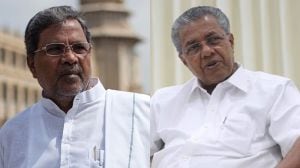What the world is reading
Two years ago,German goalkeeper Robert Enke killed himself when the pressure of the sport got to him.
The Guardian
Footballers and depression
Two years ago,German goalkeeper Robert Enke killed himself when the pressure of the sport got to him. Now,a book on the footballers life and death,A Life Too Short: The Tragedy of Robert Enke,written by Enkes friend Ronald Reng,has become a bestseller in Germany and has helped raise awareness about the dark side of an otherwise glamorous sport. Amy Lawrence writes about how its time to give some thought to the pressure-cooker environment high-level sportsmen exist within. Footballer X misses the latest in a series of sitters? Manager Y has lost the game,the dressing room,and quite possibly the plot?8230;In English football the default reaction is to mock,to berate,to intimidate. After reading Rengs book I have looked in the mirror and felt ashamed about some opinions I have dived into. It is so easy to rush to judgment,to make a cartoon villain of someone or vent spleen from a position of the supposed moral high ground.
The Wall Street Journal
The next Steve Jobs
Will there be another Steve Jobs? There are no answers yet as tributes pour in for the icon of the digital age who passed away last week. Scott Thurm and Stu Woo write that it will be a a bit absurd to try and identify as two decades ago,Mr Jobs himself would not have qualified. But the writers go ahead and attempt the absurd anyway. Will it be Facebooks Mark Zuckerberg? Other worthy contenders are Masayoshi Son,founder and CEO of Japans Softbank Corp; Chinese company Alibaba Holdings Corp CEO Jack Ma; and Stanford biologist Drew Endy. The writers then settle for Jeff Bezos,CEO of Amazon. There are similarities: like Jobs,Bezos continues to push his firm in new directions8230;Just last week,Amazon introduced a new version of the Kindle to challenge Apples iPad tablet computer. Like Jobss turtlenecks,Bezos has his own signature wardrobe: blue jeans,light blue shirt and dark blazer.
The Economist
Pakistan not a failure
Is Pakistan on the brink of collapse? The country reported 100 cases of Polio this year. Floods in its southern areas have left over 10 million people displaced. Riots broke out in several cities over erratic electricity supply. A wave of sectarian violence is sweeping through Baluchistan and shootings continue to rip apart Karachi. However,all is not lost,says the piece. A mechanism exists that could turn things around: democracy. Pakistan has never given it a chance to grow roots,but if it does,then better government could gradually follow. National elections are likely next year8230;If the current spell of civilian rule continues8230;then for the first time in Pakistans history civilians could complete a full term in office and give way to another lot of civilians.
Economic and Political Weekly
Eurozone debt crisis
This article questions whether the chaos in the Eurozone signals the end of the Euro. The article speculates that based on the current scenario,the world may be staring at a Eurozone Financial Meltdown,leading to a much more prolonged recession. It notes that the crisis has spread from Europes peripheral countries like Greece and Ireland to more mainstream and advanced nations like Italy. An IMF report says that sovereign strains have spilled into the EU banking system,increasing systemic risks,strengthening the perception that a weak policy response is responsible for erosion of market confidence. The coming days,says the article,will reveal whether the centre will hold or things will start to fall apart in the Eurozone.
- 01
- 02
- 03
- 04
- 05































